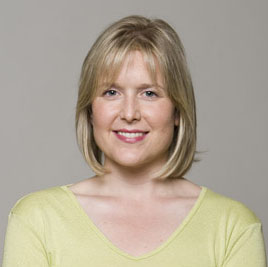Medbloggers As Press: Second Class Citizens Or New Media Elite?
 I’ve been covering a lot of health and medical conferences lately, and experiencing a wide range of reactions to my work. For those in the media who “get” blogging – I’m treated with honor and respect. One conference organizer kindly lined up the key note speakers for me to interview, not allowing them to leave until I’d asked them all the questions I desired.
I’ve been covering a lot of health and medical conferences lately, and experiencing a wide range of reactions to my work. For those in the media who “get” blogging – I’m treated with honor and respect. One conference organizer kindly lined up the key note speakers for me to interview, not allowing them to leave until I’d asked them all the questions I desired.
A different conference PR team forbade me to Twitter during the conference believing that “Twittering” was code for recording the conference and selling it to those who didn’t want to pay the high attendance fees. One CEO enthusiastically beckoned me over to speak with him (seeing my bright green press ribbon) and then looked at my title “blogger” and said in an irritated voice, “oh, you’re not real press.” At yet another conference I was invited as press and then asked to pay $30/day for Internet access. When I asked if I could interview the keynotes I was told, “I’m sure they won’t want to talk to you.”
As you can see, my experience has varied from being treated like a second class citizen, to being critical to the PR strategy. As a physician and a member of the National Press Club, I find it amusing to be “shattering the categories” in all kinds of ways. Most people find it hard to reconcile that I’m a “real doctor” who is also a full time blogger. I see patients once a week, and I cover conferences/conduct interviews/evaluate news on my blog the rest of the time. “But you can’t be a real doctor,” they say, peering at my press badge, “you don’t look like one.”
For PR and communications strategist in the know, medical bloggers are powerful way to reach their target audience. Better Health, with its partner sites and blogger network, reaches over 11 million unique viewers per month. As the CEO, I have been invited to speak at AMA sponsored conferences, on CBS and ABC news, at the National Library of Medicine, and have been quoted by the Wall Street Journal, and LA Times. A PR executive told me recently, “forget the Today Show, Better Health reaches a larger and more targeted health demographic.”
And yet, blogging and new media are ahead of industry, traditional PR, and communications efforts in healthcare in terms of reach and influence. Very few have figured out how to work with medical bloggers in any consistent way, even though there’s a great new channel to do so: the Better Health network.
As I have often said, blogging is upstream of mainstream media. It’s a great place to be, though misunderstood by some. I’ve grown a thick skin and expect confused looks – because I know that in a year or so, medical bloggers will be an integral part of health conference coverage, probably upstaging their current mainstream counterparts. One day soon blog networks like Better Health will be in a position to hire journalists as part of a new hybrid team of reporters and scientists, better able than ever to communicate the significance of health news.
Imagine getting immediate commentary from a researcher who understands the complex science behind a medical breakthrough? Even the best health writers are often ill-equipped to know how to interpret author spin or biostatistics. But by combining those trained in journalism with those trained in medicine – and producing content that is conversational and accurate – readers gain access to a deeper understanding of health information. The old journalism mantra “we report, you decide” becomes “we interpret, you decide.” And for those without a medical background, the interpretation can add tremendous value.
As the world adapts to the Internet age, watch for a fundamental shift in the way health information is reported. Adding physician, nurse, and scientist writers into the mix will only enhance the quality of what we read. In a world grieving the loss of newspapers and health beats, I remain optimistic – because I believe we’re on the verge of a rebirth in health communications, and we’ll all be better for it.


 I thought I’d highlight some interesting posts written by my peers this week. Keep up the great blogging, everyone!
I thought I’d highlight some interesting posts written by my peers this week. Keep up the great blogging, everyone!







